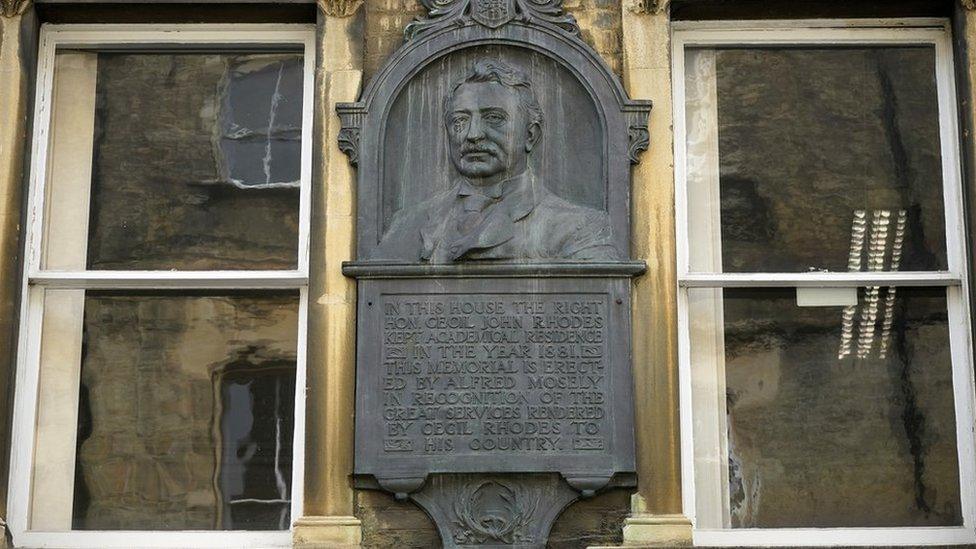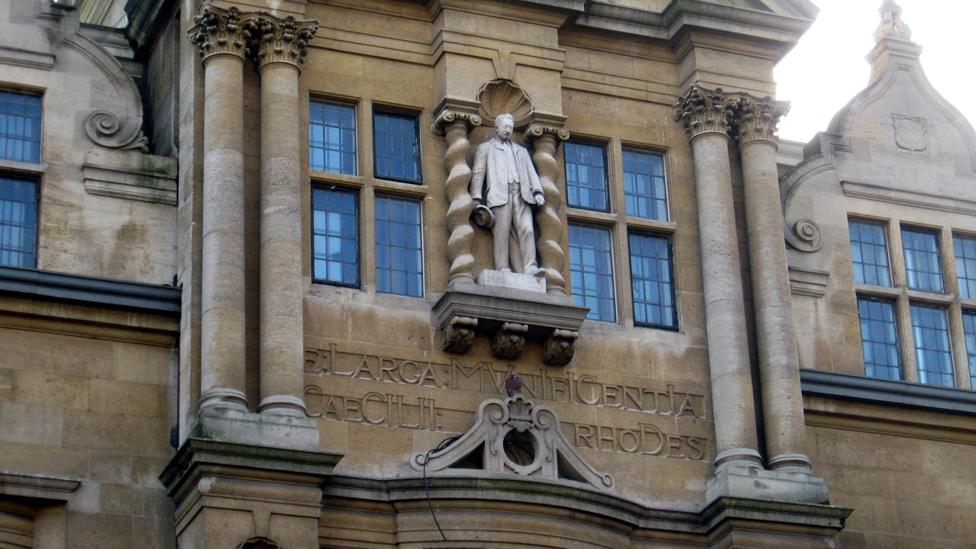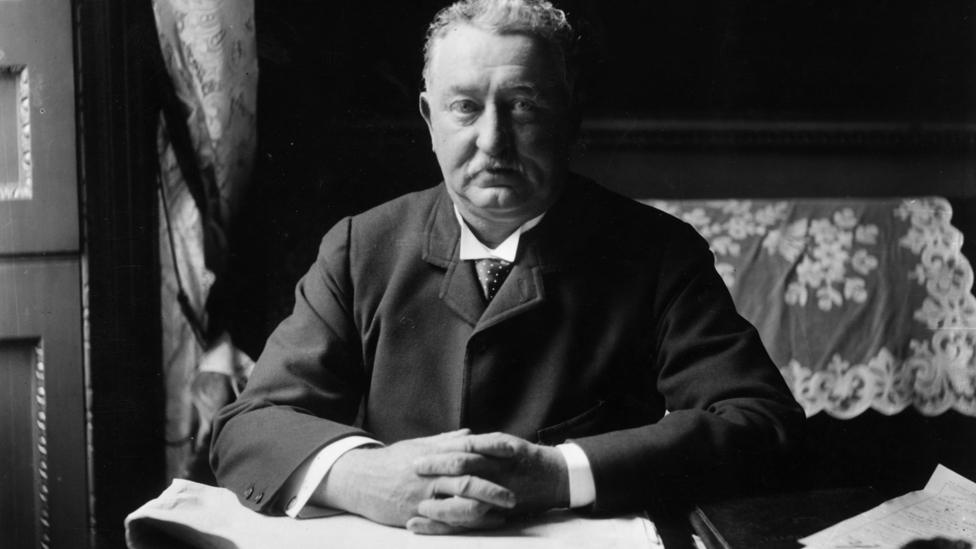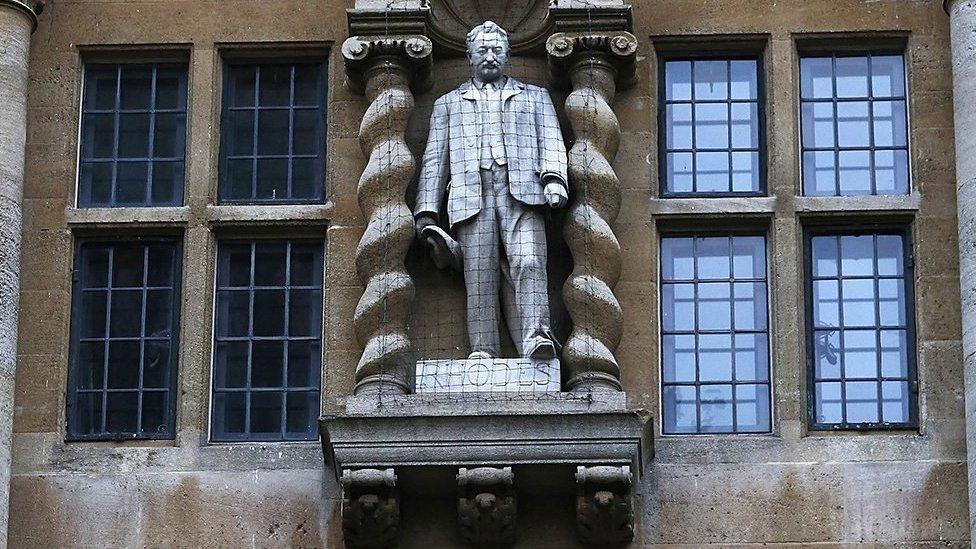Oriel College's Cecil Rhodes plaque given Grade II listed status
- Published

The plaque in Oxford says it was erected to recognise "the great services rendered by Cecil Rhodes"
An Oxford University college's plaque commemorating the British imperialist Cecil Rhodes has been given listed status by the government.
The Oriel College memorial is near the statue that sparked years of protests by the Rhodes Must Fall campaign.
Historic England previously said the plaque did not merit legal protection.
But the Department for Culture Media and Sport (DCMS) said culture secretary Nadine Dorries felt it to be of "special historic interest".
Rhodes, a 19th Century merchant and politician in southern Africa, was a student at Oriel and left the college £100,000 when he died in 1902. That is equivalent to about £12.5m today.
Campaigners say he represented white supremacy and was steeped in colonialism and racism.

Thousands gathered outside Oriel College in June 2020 to protest against the Cecil Rhodes statue
In June, DCMS said Ms Dorries was "minded" to give the plaque, in King Edward Street, listed status because of its "special and architectural and historic interest".
It has since been officially given Grade II listed status, external by the culture secretary.
"We are committed to retaining and explaining our heritage so people can examine all parts of Britain's history and understand our shared past," a DCMS spokesperson said.
The plaque, by Onslow Whiting, has been in place since 1906. It was paid for by Sir Alfred Mosely, a Hatton Garden diamond merchant.

The Cecil Rhodes statue stands on the building named after him at Oriel College
In February 2020 Historic England recommended the bronze memorial lacked a "richness of detail" to make it of national interest.
The following year Oriel's governing body had said it wished to remove the plaque and a statue of Rhodes in High Street.
That decision was backed by the independent commission appointed to examine its future and Rhodes' legacy, external.
But the college later said it would not seek to move them due to costs and "complex" planning processes.

Cecil Rhodes was admitted to Oriel College in 1873 and took his degree in 1881

Follow BBC South on Facebook, external, Twitter, external, or Instagram, external. Send your story ideas to south.newsonline@bbc.co.uk, external.
- Published15 June 2022

- Published12 October 2021

- Published20 May 2021

- Published21 July 2020

- Published26 June 2020
